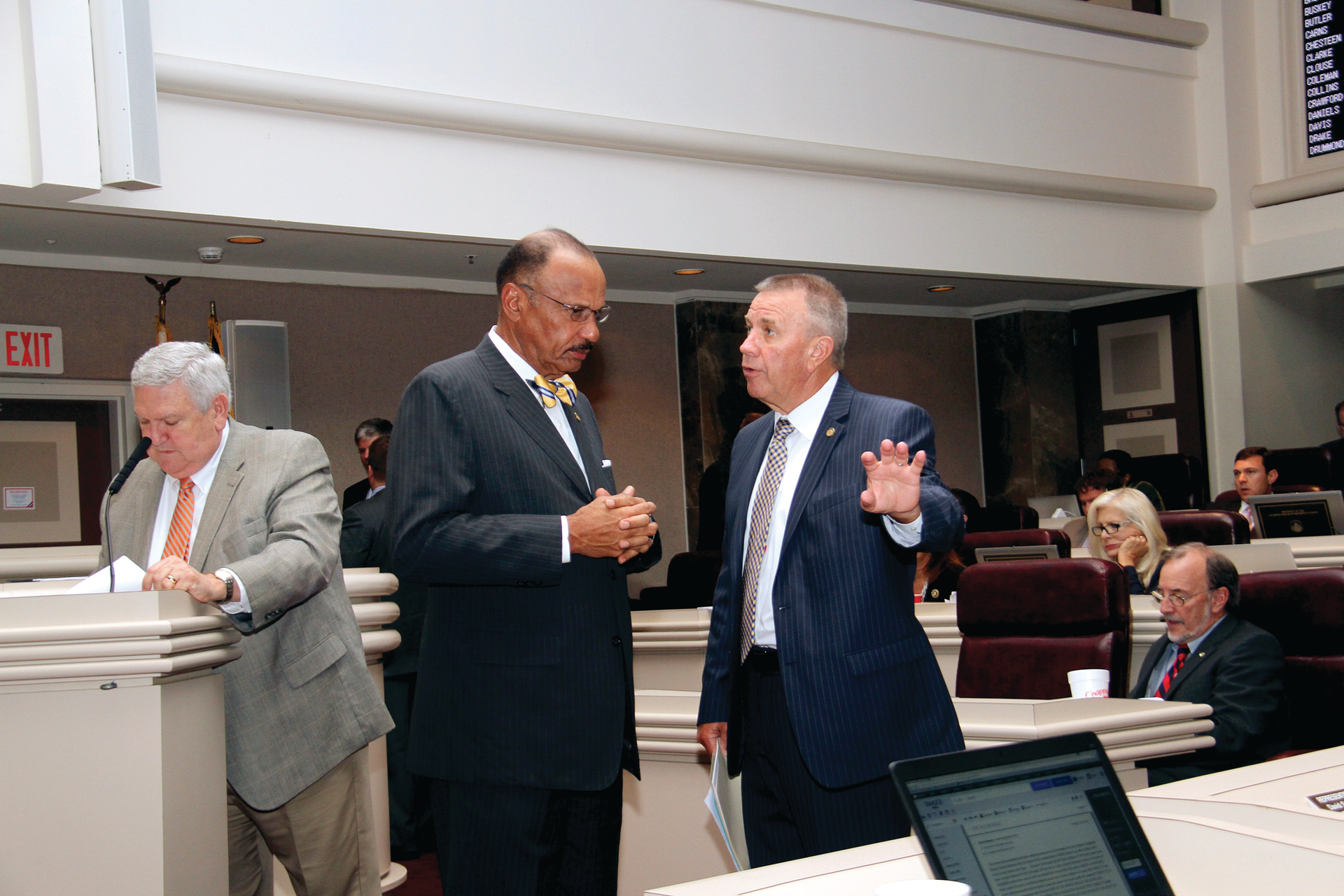
As the 2017 Legislative session nears, one of the biggest concerns for new Speaker of the House Mac McCutcheon is healing some of the divisions among his House members, and changing their focus to work for a common good.
“They’re working well together,” the speaker said of the House members just before Christmas. “They’re focused on working together to accomplish something. That was one of my big goals, to try to bring the group back together so we could all work together, and they’re doing that.”
McCutcheon, R-Monrovia, was elected speaker in August, replacing former Speaker of the House Mike Hubbard. The Auburn legislator was convicted of 12 ethics charges in 2016, which triggered his removal from office. Legislators chose McCutcheon to fill the speaker’s chair with 68 votes over the Democratic candidate, Rep. John Knight of Montgomery.
By all accounts, McCutcheon is universally liked and respected by lawmakers on both sides of the aisle.
Other than creating a more unified body, McCutcheon’s top priority is the budgets, especially the continually troubled General Fund budget. McCutcheon says he’s been traveling around the state, talking to voters about their concerns, and “looking at facts and information rather than rumors.”
To that end, McCutcheon sponsored a resolution in September that created a 14-member task force, which includes seven senators and seven House members, to meet and discuss budget reforms and tax credits. It is to report its findings to the Legislature during the upcoming session.
“This commission is not about a piece of legislation,” he says. It’s about gathering facts and information, he says, “and we’ve never approached it that way before.”
McCutcheon says he’s weary of people who say, “we’re wasting too much money,” with little evidence to back up the assertion. “My response is, where are we wasting it? So far, I haven’t had anybody who’s been able to give me facts and figures about which agency is wasting money.”
He also wants to find a solution to the revenue streams, which fund state government. “We keep chipping away at a revenue stream, and the cost of running business continues to go up.” He says a fresh look at property tax and a fair tax (moving away from income tax and moving toward a consumption-based system) is a “discussion that needs to happen to get us thinking about new ideas and being creative.”
The new speaker discussed several issues he foresees in the upcoming session in a recent interview.
Infrastructure. “We haven’t addressed any type of funding for statewide, and I emphasize statewide, infrastructure,” he says. But there is no clear-cut solution. “Is gas tax the answer? Energy-efficient vehicles? Tags? Buying registration permits?”
McCutcheon says that for many of the rural counties that have high unemployment, the lack of a good transit system is holding them back from prosperity. “The workforce is there,” he says. “But you can’t get companies into the state, into some of these areas, because we don’t have the infrastructure to move their stuff in and out. That’s a huge thing.”
Medicaid. President Trump has advocated turning Medicaid funding into block grants, which McCutcheon thinks could be beneficial for the state, so long as the feds don’t over-regulate the money. Advocates for the poor fear the block grant idea will actually mean less funding for Medicaid, which is a state-federal partnership.
Medicaid covers one in five people in Alabama and is crucial to the health care for nearly half of the state’s children. Medicaid’s funding hasn’t kept pace with its growth; the legislature voted to use part of Alabama’s share of BP settlement funds over the 2010 Gulf oil spill to provide $105 million for Medicaid in 2018.
But that in itself is an issue, McCutcheon says. One-time monies have plugged holes in the budgets, but “we are not in a position where we can sustain Medicaid growth,” he says. “We have to find a way to fix the problem.”
Prisons. In 2016, Department of Corrections Commissioner Jeff Dunn, with Gov. Robert Bentley’s backing, proposed an $800 million plan to construct new prisons to close and relieve the state’s overcrowded prisons. The plan didn’t make it out of the Legislature, and among the concerns are the impacts the closures would have on rural communities, where the prison is often the largest employer.
“I know it’s a hotbed subject, but I think it needs to be on the table,” McCutcheon says. It will be a No. 1 priority from the governor’s office, and he thinks the legislators can find a solution. “We sure don’t want the federal government to dictate to us what to do.”
Agriculture – specifically incentivizing irrigation of farmland. “The studies have shown that if we can provide water to (more) land, we can increase our economic agriculture situation tremendously.” Even without the lingering drought in Alabama, McCutcheon says the state needs to help farmers be more productive.




